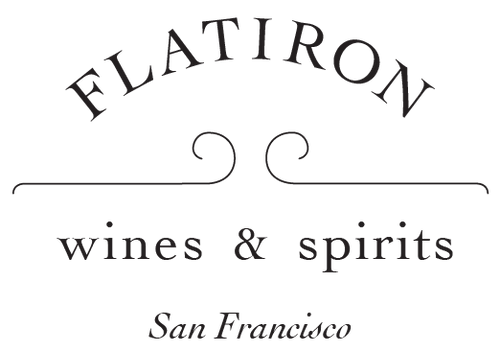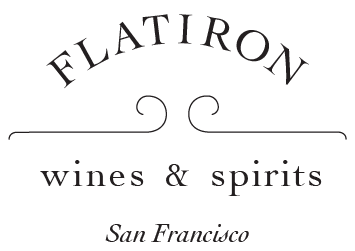
Vaskapu Kastély: The New Southern Hungarian Wines
For a long time now, Eastern Europe has been the source of many of the wines that I drink. It’s the combination of unusual and delicious varieties, produced by folks who are fully dedicated to preserving winemaking cultures that go back not just centuries but millennia. Even though they hail from the cradle of winedom, they have flavors and aromas that are new and exotic to those who have only ever consumed bottles produced west of Hungary.
The person that has long fed this addiction is the one and only Eric Danch. Apparently a born masochist, Eric endeavored on a journey to bring craft, Eastern European wines to the masses almost a decade ago. At first it was a slog but with the wine audience having become so much more diverse and adventurous over the last ten years he has truly hit his stride. His new import company he co-owns with his partner Catherin Granger, Danch & Granger, are the best in the biz and continue to mine the lands of the former Austro Hungarian and Ottoman empires for enological gold.
Most recently, Eric struck gold in Pécs, a village and appellation in the Southern Hungarian wine region of Pannon. Along with Pécs, the region consists of three other appellations; Tolna, Villány, and Szekszárd. Take my word for it, this is the least well known of the four. All are south of Budapest, and just above the Croatian and Serbian borders. Pécs and its neighbouring village of Mohac are part of the borderlands between East and West. You can easily see this in the architecture of the region. Churches turned into Mosques turned back into churches. There are Roman ruins, a 4th century Christian necropolis (UNESCO World Heritage Site in 2000), 16th Century Ottoman Mosques, Minarets, Turkish baths, Synagogues, and apparently a museum that has the heart of Sultan Suleiman I. Pécs was the European Capital of Culture in 2010 and its motto is "The Borderless City." You can see, hear and taste the influences of the Serbs, Croats, Germans, Romanians, Greeks, Hungarians and Turks.
This is where you will find Géza Galán and his winery Vaskapu Kastély. Géza is not originally from the area but his wife Ibolya has her roots in Lánycsók (A girl’s kiss), a small nearby village. In 2015 Géza started making a little hobby wine in a small cellar in Pecs that quickly turned into an obsession. Three years later they made a leap of faith by buying the Vaskapu Kastély (Iron Gate Castle) in Mohács.
The climate here is sub Mediterranean with cool and constant breezes from the Danube and the protective shelter of Mecsek Mountain. This all culminates in a long, healthy, and warm growing season and little to no risk of frost. The bedrock is volcanic, but it’s the loess, clay, forest loam, and extremely high lime content that drives the structure of the wines.
Historically, in an attempt to emulate Tokaj, Furmint and Hárslevelű were both planted although the climate was never suitable to botrytis, the fungus that makes Tokaji wines so special. Other traditional grapes included Kadarka, Olaszrizling, Traminer, Sárgamuskotály, and later Királyleányka. Bordeaux varieties have also taken root in the area as they have in almost every wine growing region around the globe.
Géza’s 2.5 hectares encompass a mix of the past and present. Everything is farmed according to biodynamic principles including no tilling and organic spraying is kept to a minimum. There’s one hectare each of Kadarka and Cabernet Sauvignon and the rest is a mix of Hárslevelű, Merlot and Cabernet Franc. He’s working on new plantings of Kadarka, Kékfrankos, Olaszrizling and Rajnai (Rhine) Rizling.
Géza wants his wines to express the “genius loci'' of Southern Hungary, which basically translates to the protective spirit of a place. Farming biodynamically and practicing low intervention in the cellar are a means to this end. His two sons, Gáspár 3, and Zsigmond 2, ever present at the winery and in the vineyards, are vivid reminders of the importance of farming regeneratively. His is the kind of family that encapsulates the best of the new generation of growers in Hungary and the surrounding regions. They are making wine that has long term family legacy in mind in both the health of the soil, the wines, and celebrating the culture of the area. According to Géza, “For me winemaking is life, it is the harmony between human and nature, the responsibility for sustainability and our smaller societies.”
This is Géza’s inaugural comercial vintage and probably the first wines from Pécs imported into the US. They arrived a couple of months ago and sold out almost immediately. We decided to hold onto ours for a couple of months as wines like this always need a little rest after their long journey. I’m happy we did as they are showing beautifully.
They are alive and wild with delicious flavors both familiar and wholly new. For an inaugural vintage of a natural producer, there is a quality to them that speaks to an inherent talent in the winemaker. There is a complexity and depth that elevates them beyond the delicious yet simple village wines you usually find around these parts. The wines of Vaskapu Kastély do what only the best wines can; they transport you, with their aromas and flavors, to places and cultures you have never been to or experienced.
As previously mentioned we have precious little of this wine and we may have the last few cases on the Best Coast. These are joyful, energetic wines and I expect they will go fast so click through to the collection and grab yourself some of these rare Hungarian gems. While these are endlessly versatile with food, they are at their finest when served with a paprika laden bowl of Hunagarian Goulash.
Shop our full Vaskapu Kastely collection.
Vaskapu Kastély, Pécs Hárslevelű, 2019
This is a blend of two clones harvested at the same time including a few shriveled berries. 30% was direct pressed and 70% was whole cluster. Everything went into an open fermentation vat for 4 days of semi carbonic with enough juice from the direct press to keep everything healthy. The wine was then moved into a French barrel and a glass carboy for 1 year on the lees. It has just enough maceration for some extra texture, keeps a ton of the primary aromatics, and is dry at 12%.
Vaskapu Kastély, Pécs Kadarka, 2019
6 different clones of Kadarka were planted on the Jenyei Hill in the early 1990s. This area was already well known for Kadarka in the 19th Century and is the backbone of Géza’s 2.5 hectares. The 2019 had 15 days of semi carbonic maceration with a mixture of foot trodden and hand crushed juice to keep fermentation going safely. It was then aged for 1 year in 500L Hungarian oak. No racking, bottled unfined and unfiltered with less than 10ppm SO2 total. We are completely obsessed with this grape. It’s light bodied, aromatic, has a little grip, full of life, and is just a pleasure to drink.
Vaskapu Kastély, Pécs Rosé, 2019
This is a 50/50 estate blend of Kadarka and Merlot. Briefly macerated overnight, everything was then direct pressed with equal parts going into stainless steel and used barrel. Aged on the lees for 8 months and bottled unfined/unfiltered. This is somewhere between a light red red and a rosé, leaning rosé. Crisp with a core of tart red fruit and tons of spicy freshness.

